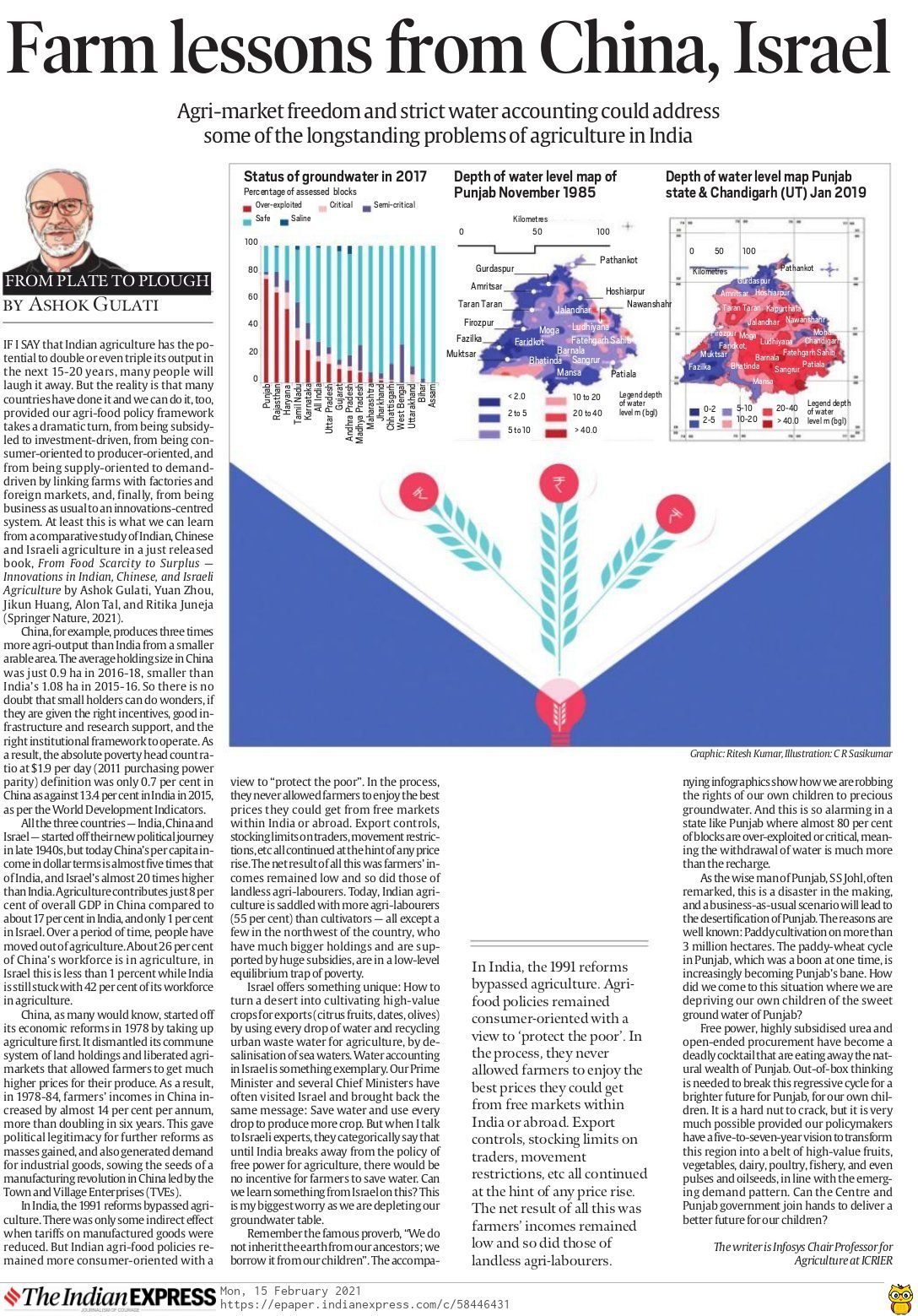How an unlikely trio achieved food surplus

There are many routes to food security. Countries large and small have succeeded; others are still trying. Our Foundation has helped chart three very different success stories in a single book.
Remember playing «Odd One Out» at school? Dog, cat, TV? (It was the cat because you needed a license for the other two). Well, China, India, and Israel look like a prime trio for the same game. Which is the odd one out here? When it comes to farming, Professor Ashok Gulati reckons it’s his country, India. He’s made that clear in recent newspaper articles*.
Gulati should know: Not only does he hold the Infosys Chair for Agriculture at ICRIER, but he is also co-author of a new book on the subject. «From Food Scarcity to Surplus» takes a close comparative look at innovations in Indian, Chinese and Israeli agriculture.
At first sight, the three nations seem a strange mixture in a single book. They share neither a political system, dominant language, religion nor social structure. They have neither all fought the same wars nor do they favor the same sports or culture. They don’t even have a common climate or dietary history. But as Gulati points out in those articles, they DO have some key similarities. And these are highly relevant for this book.
All three countries, as he puts it, «started off their new political journey in the late 1940s». None of them yet carried much weight internationally; each had some prickly neighbors. All of them struggled for political stability. First and foremost, however, they all faced the same huge challenge: how to feed their populations, starting from a miserable agricultural base. «From Food Scarcity to Surplus» charts what happened over the following decades.
The book’s authors include our Policy and China Program Head, Yuan Zhou. Together, these experts** show how an unequal trio overcame economic, social, and natural resource challenges – in some very different ways. They examine numerous innovations and policies, some dreadful failures, and a selection of challenges that lie ahead. «We also highlight valuable lessons that India, China, and Israel provide for today’s developing countries», says Yuan.
The publishers, Springer Nature, describe the book as «an impressive resource for academicians, policymakers, practitioners, agribusiness players, and entrepreneurs». It is designed to help them all understand the crucial role of innovations in addressing agricultural challenges.
Watch out for further information and discussion here soon!
**Ashok Gulati, Yuan Zhou, Jikun Huang, Alon Tal and Ritika Juneja.
eBook €93 (ISBN 978-981-15-9484-7) / Hardcover €110 (ISBN 978-981-15-9483-0)

